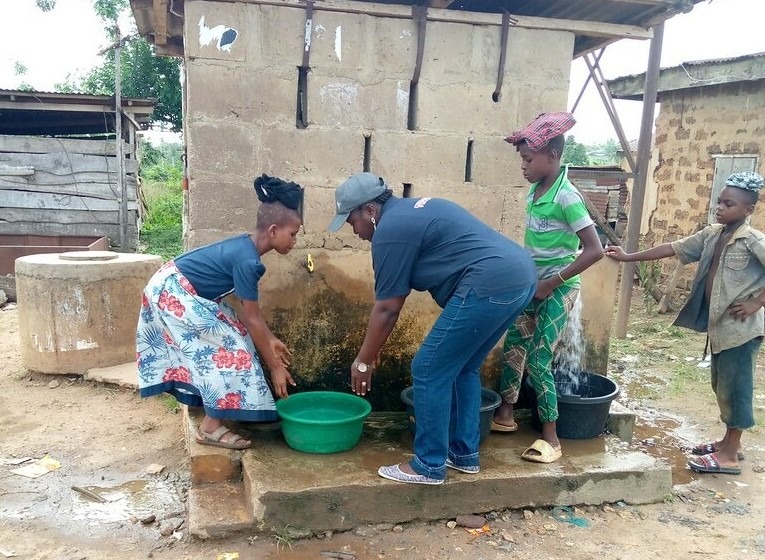Summary
“We never know the worth of water till the well is dry.” – Thomas Fuller
Itohan who hails from Nigeria experienced directly what it means if access to potable water is not a given. She grew up in an area with limited water access. In this blog she shares a story she came across during a field work assignment.
by Itohan Iyawe
How water shortage drowns education opportunities in Nigeria
During the course of one of my fieldwork for the identification of problems/challenges in rural communities, I visited the Irese community in the southern part of Ondo State, Nigeria.
There, I met with Alice, a fifteen-year-old girl, looking way older than her age. As she looked worried, I asked her if I may know what is eating her up and if I can be of help? She responded by raining causes on the leadership of Nigeria and I was wondering what that has got to do with her look or if that’s the answer to my question.
She continued by saying “Bad leadership leads to societal problems which brought us family challenges.” She sounds intelligent, I said to myself. I told her she was speaking in a parable that she needs to make me understand her situation better, so I can know how or where to assist her. She looked at me from head to toe and looked away because she saw me as one of the politicians who have been to their community in the past with several promises to grant help without fulfilling any of them, but mainly used them to achieve their selfish interest, which is the main cause of all the challenges in the country as the government doesn’t care about the well-being of the citizens. I requested to meet with her family to get a better understanding of their situation, however, she was reluctant to take me to her home. I asked why that was, and she said that she was ashamed of their present predicament. I persuaded her and she led me to her home.
As I entered their house, I could feel the texture of an offensive odour I perceived from the entrance. I only got to understand the extent of the shame after an encounter with her parents who narrated how they had suddenly fallen from grace to grass.
Alice’s dad narrated their ordeal of how they once lived in a plush community in Northern Nigeria where access to basic social amenities including water was easy until after an insurgency that left many people displaced. The insurgency which was caused by hungry and angry unemployed youth against the government which promised them employment but failed to fulfill the promise after two decades.
Alice and her family had to relocate to the densely populated Irese community in the South West.
The biggest issue facing the community is water scarcity which has led to poor farm yields and waterborne diseases. This struggle has persisted as this community has lacked potable water for over 100 years. People in the community have to trek 16 kilometres (to and fro) to access water in a dam. However, that dam is shared with animals. The saddest part is that children and women are often faced with risks of kidnappings and abuse plying the stretch all the time. Schools also suffer the brunt as children are mostly late or are unable to attend at all, especially during the dry season when accessing water becomes an even bigger challenge.
Now, Alice’s two siblings are battling with cholera and typhoid which are the main waterborne diseases prevalent in the community.
Her father and mother have tried taking up farming to at least help with food sustenance and income, but the drought situation leaves them running at constant yearly losses as the little income they make is being spent on hospital bills and medications.
So, sending the children to school was not even something to think or talk about.
They all looked overwhelmed by the challenge and wish they could get help. They needed not to say it before one will see poverty written all over them.
From Alice’s house, I went to see the assemblyman, popularly known and addressed as BAALE to know the impact of the situation on his own family and what is being done by his office. He told me they have sent countless letters and reminders to the Ministry of water resources and even followed up with personal visits, but nothing has till now been done.
The consequence therefore are waterborne diseases and poor farm yields leaving people struggling to live decent lives. Children especially struggle as they are unable to attend school on time or sometimes due to the lengthy hours, they need to walk to get water. This in turn increased the rate of out-of-school children, which is a future time bomb for the nation.



